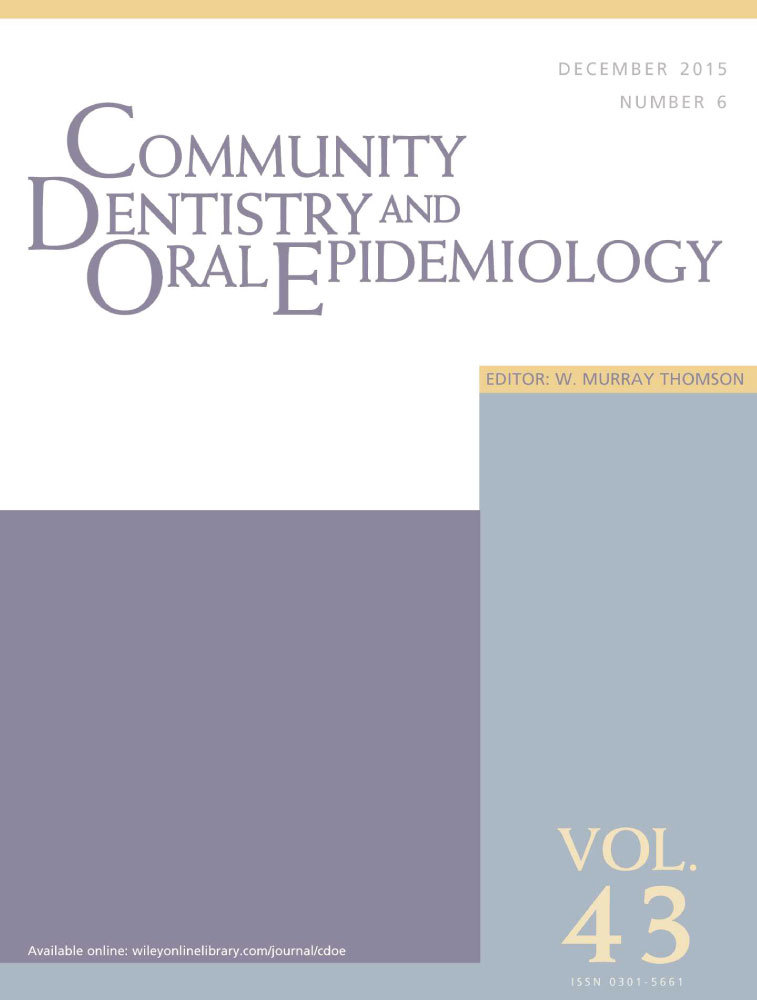Association of parental education with tooth loss among Korean Elders
Abstract
Objective
There are few reports showing an association between childhood socioeconomic circumstances and tooth loss among the elderly. The purpose of this study was (i) to examine the association between early childhood socioeconomic position (parental education level) and tooth loss and (ii) to determine the relative effects of the subjects’ education level, occupation, and income on tooth loss in Korean elders.
Material and methods
Data from the fourth and fifth Korea National Health and Nutritional Examination Survey on 8814 Korean elders (age ≥65 years) were analyzed. Demographic factors (age, survey year, marital status, and residence area), health behaviors (dental check-up during the past year and cigarette smoking), and the presence of a somatic health problem (diabetes) were included in our gender-specific analyses. Tooth loss was defined as edentulism or severe tooth loss (<20 teeth). For our analyses, chi-square test and Student's t-tests and multiple logistic regressions were performed.
Results
A low parental education level was associated with elevated odds of edentulism (OR = 1.87 for father's education and 1.52 for mother's education among male elders and OR = 1.73 for father's education and 1.55 for mother's education among female elders) and with severe tooth loss (OR = 1.58 for father's education and 1.53 for mother's education among male elders and OR = 1.25 for father's education and 1.48 for mother's education among female elders). The association between parental education level and tooth loss was attenuated after adjusting for the subject's education level, occupation, and income. Relative magnitude of attenuation varied with personal factors (education > income > occupation). In a fully adjusted model, father's education level was significantly associated with edentate status (OR = 1.96 for male elders and 1.46 for female elders), but not with severe tooth loss.
Conclusion
Our results indicate that early life socioeconomic circumstances measured by the father's education level were independently associated with the edentate status of Korean elders.




